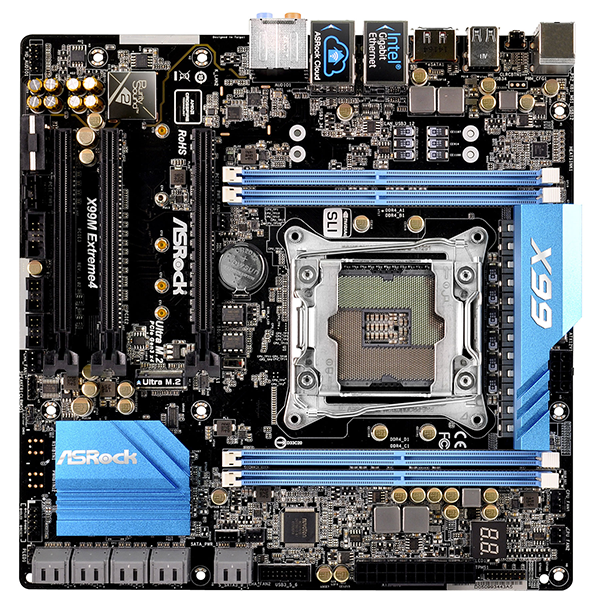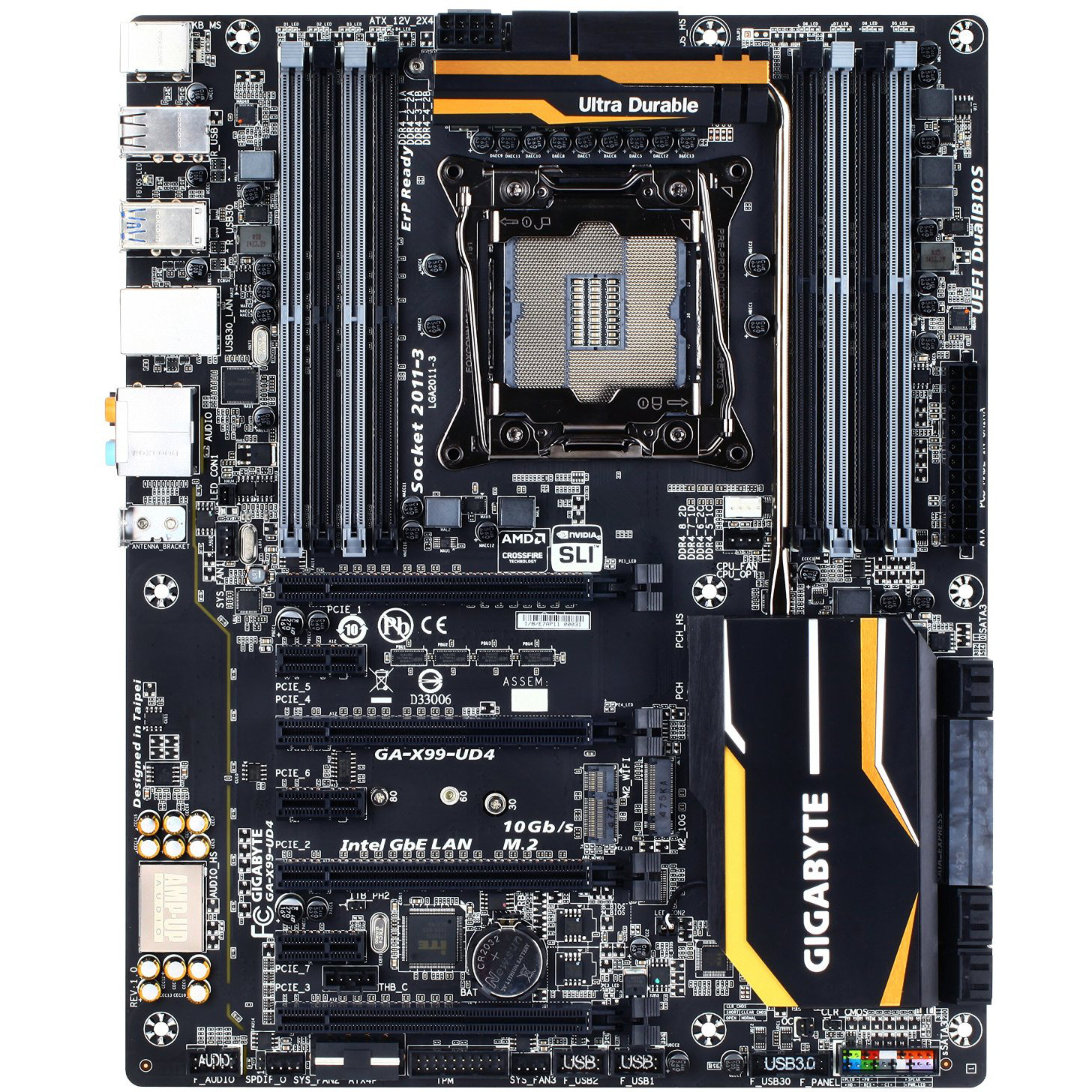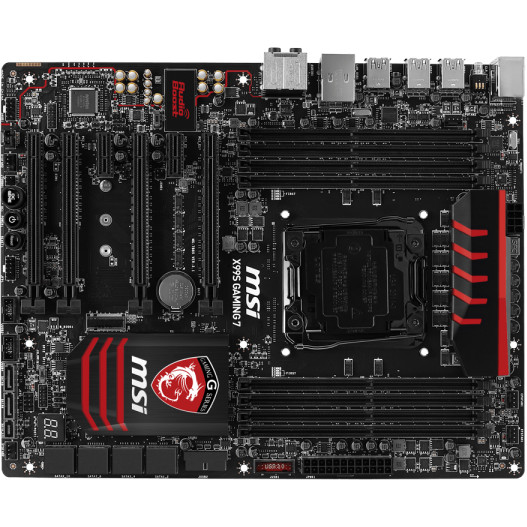Asus X99 Pro Motherboard Review: More Memory Multipliers
The first motherboard in our labs to support unofficial memory multipliers, Asus’ X99 Pro quickly became the go-to product for our recent DDR4 roundup. Does the X99 Pro have enough additional features to justify its over-$300 price?
Why you can trust Tom's Hardware
Results: Benchmarks, Power, And Efficiency
Retained hardware and software settings from our X99 launch round-up allows me to compare the performance of every tested X99 motherboard to the most recent products. Asus' X99 Pro gives us the opportunity to see an extra month of firmware development in action, without any other advantages.
Synthetic Benchmark Results
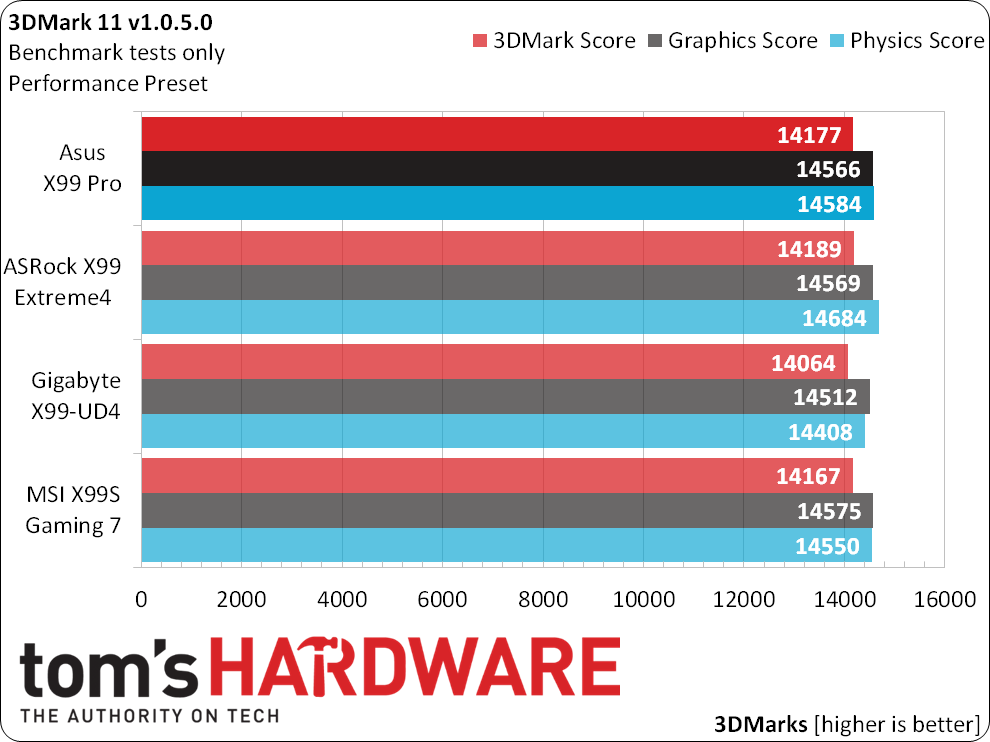
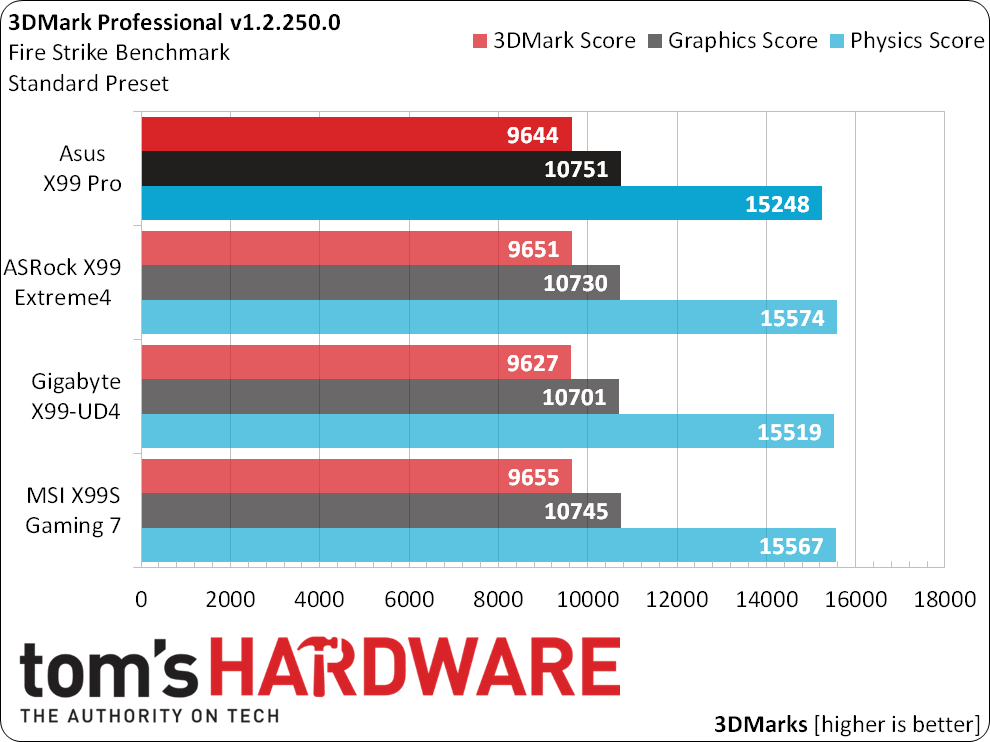
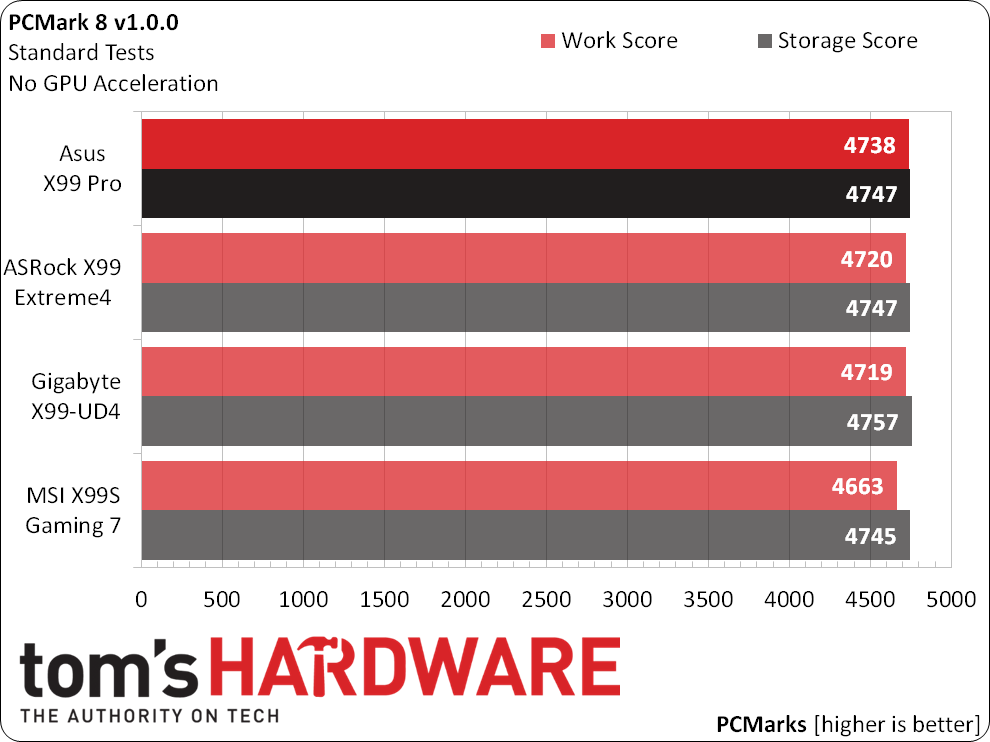
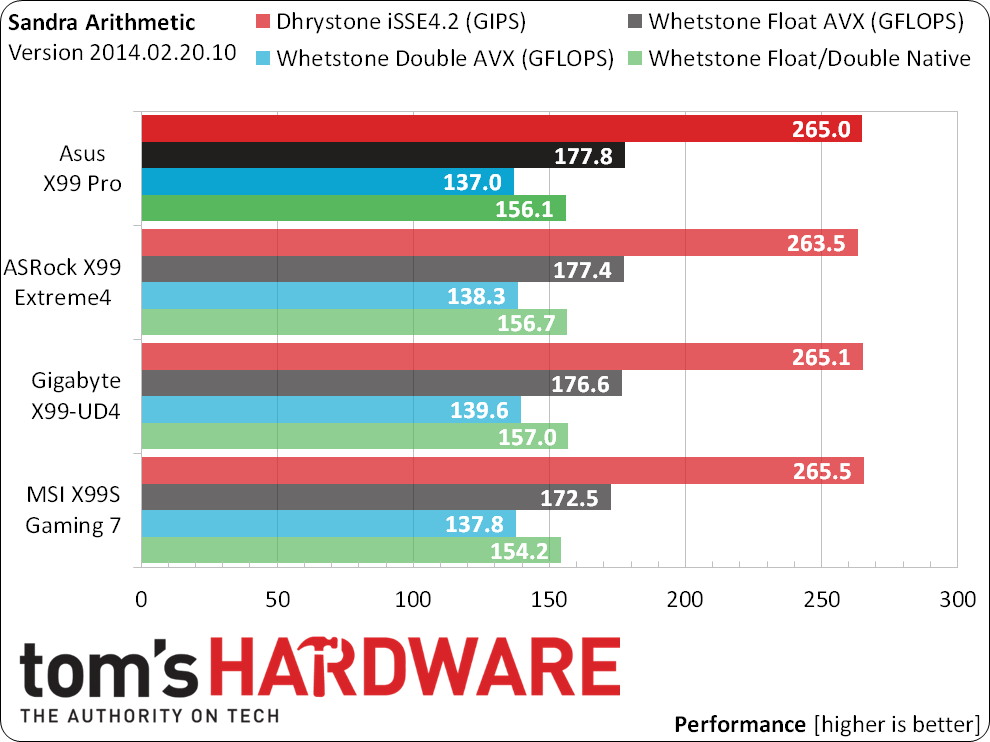
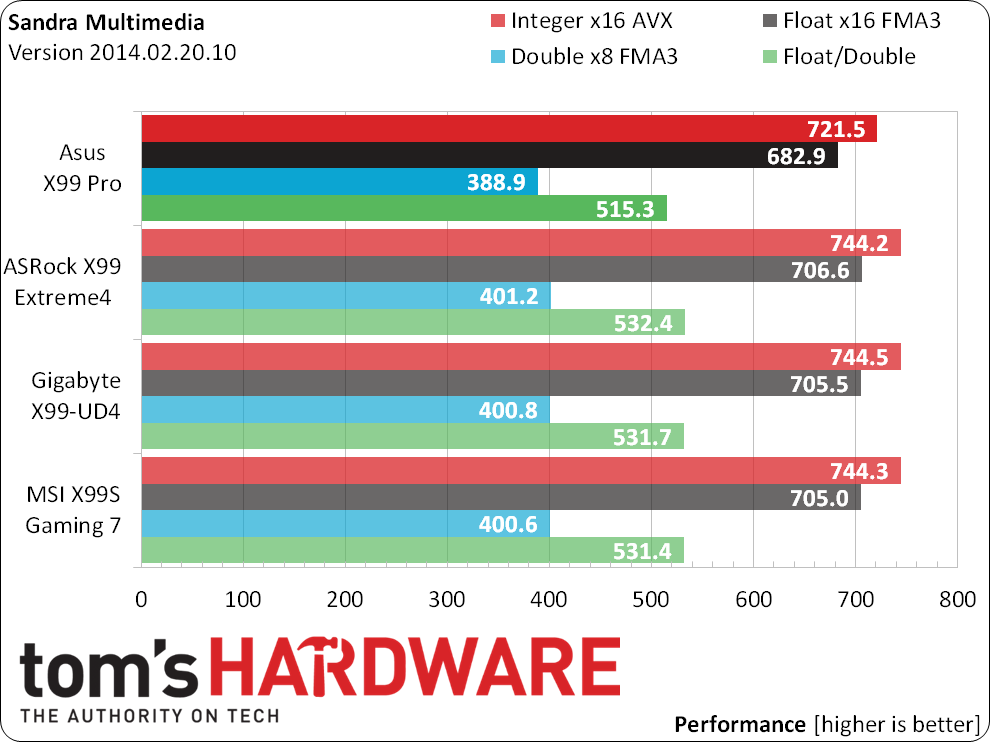
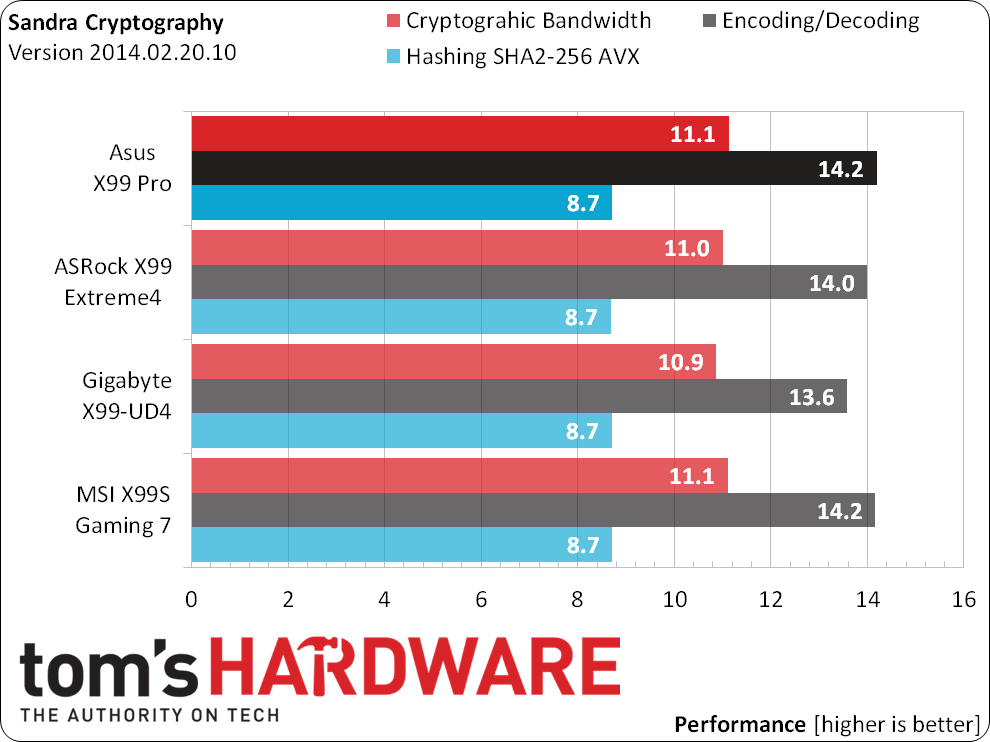
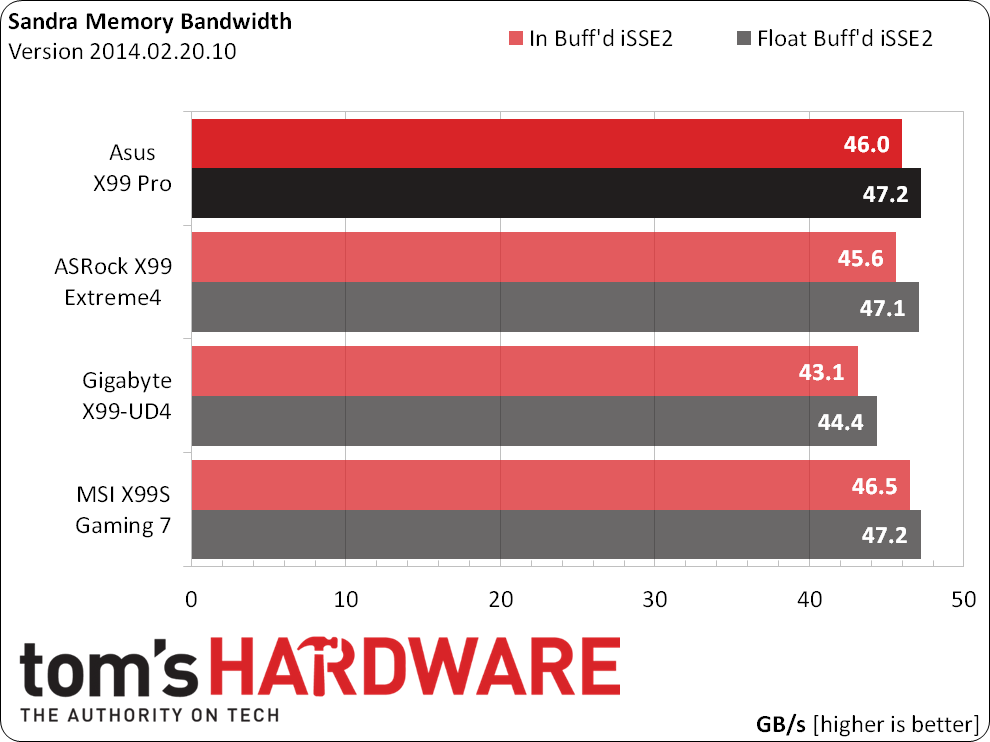
Synthetic benchmarks are perfect for showing whether a single component is running out-of-range (under or overclocked), and how well each manufacturer optimizes memory for performance (in addition to the standard SPD settings). In this case, the X99 Pro ties our formerly-tested MSI motherboard for top memory performance.
Gaming Benchmark Results
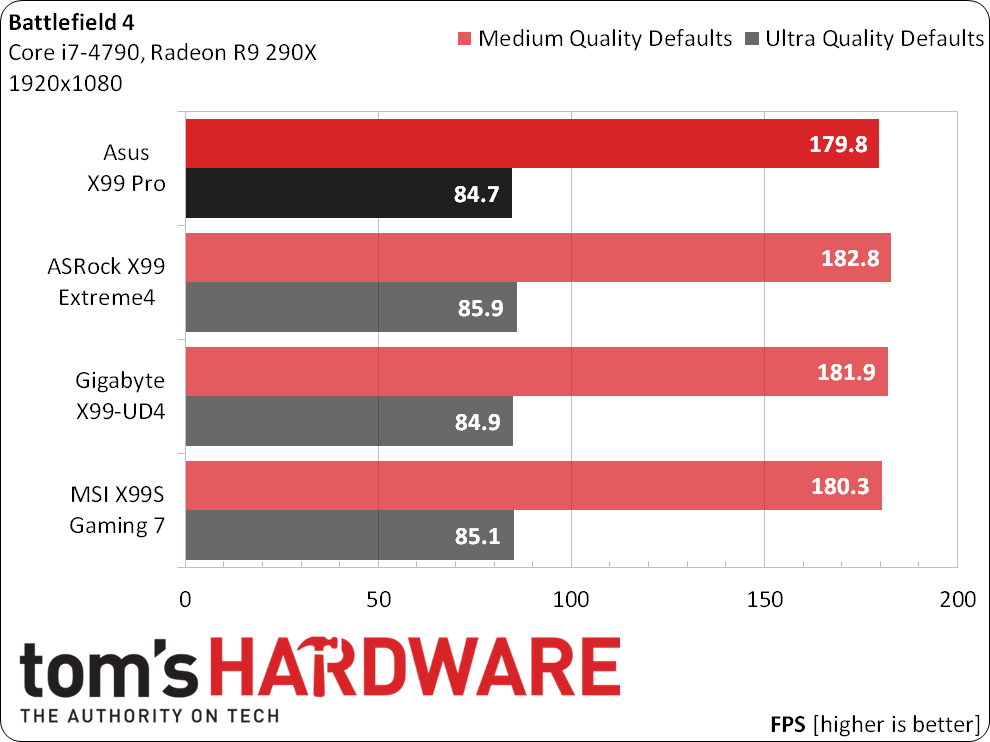
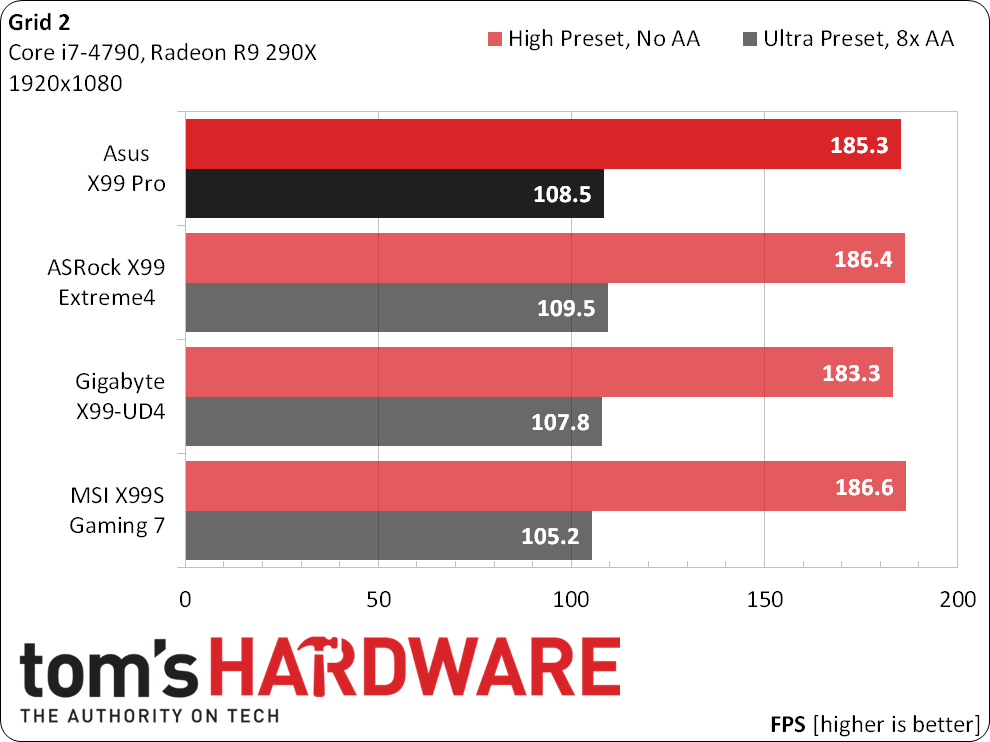
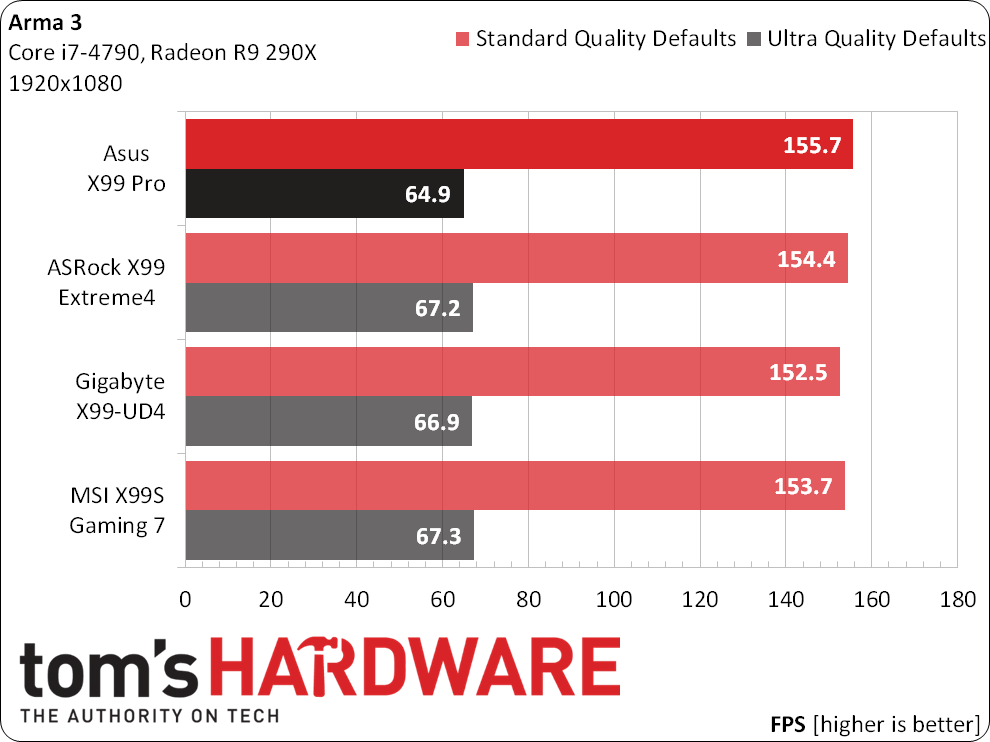
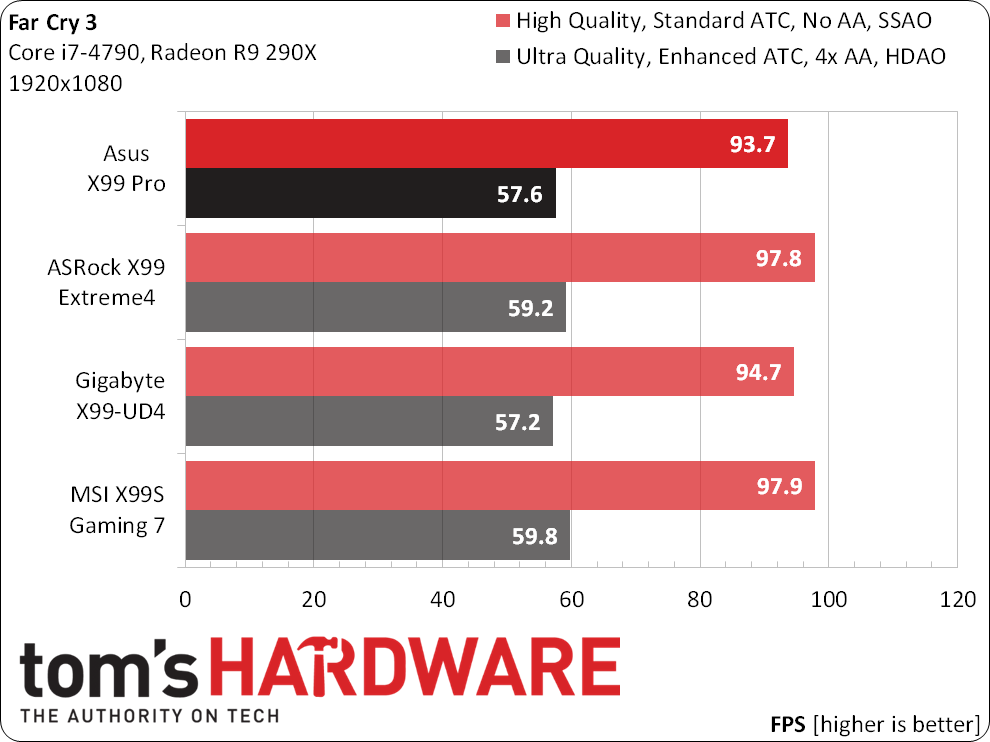
Though the X99 Pro approaches the average gaming performance of previously-tested ATX boards, it's down slightly in Far Cry 3. That could be due to its slightly lower (99.8MHz) BCLK, but it’s more likely a quirk in the test.
Application Benchmark Results
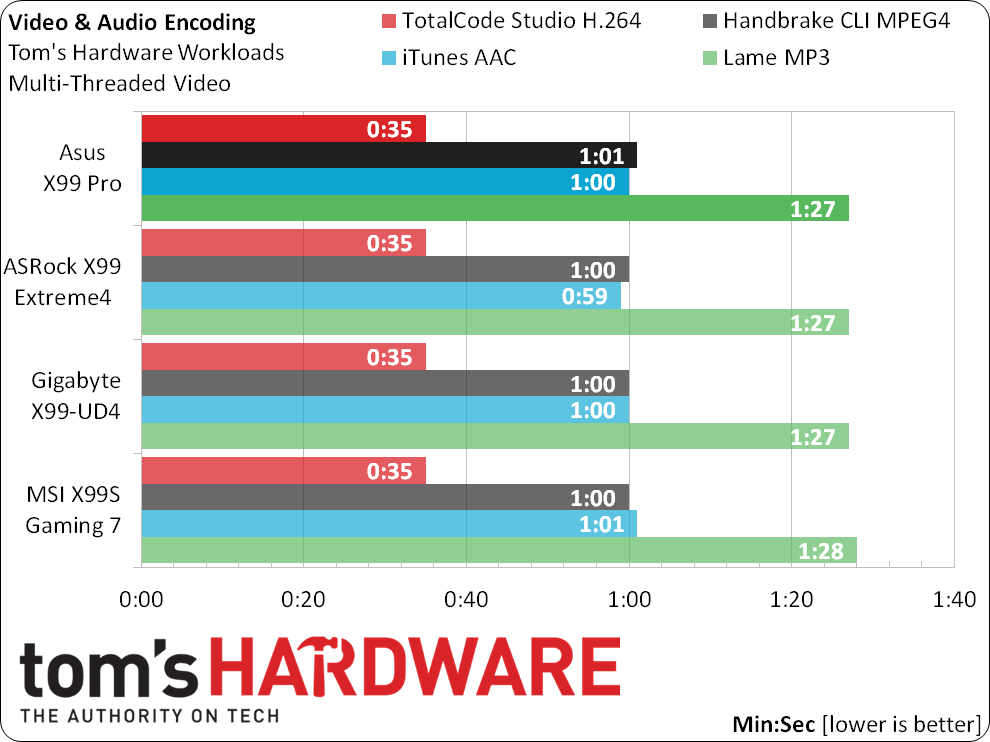
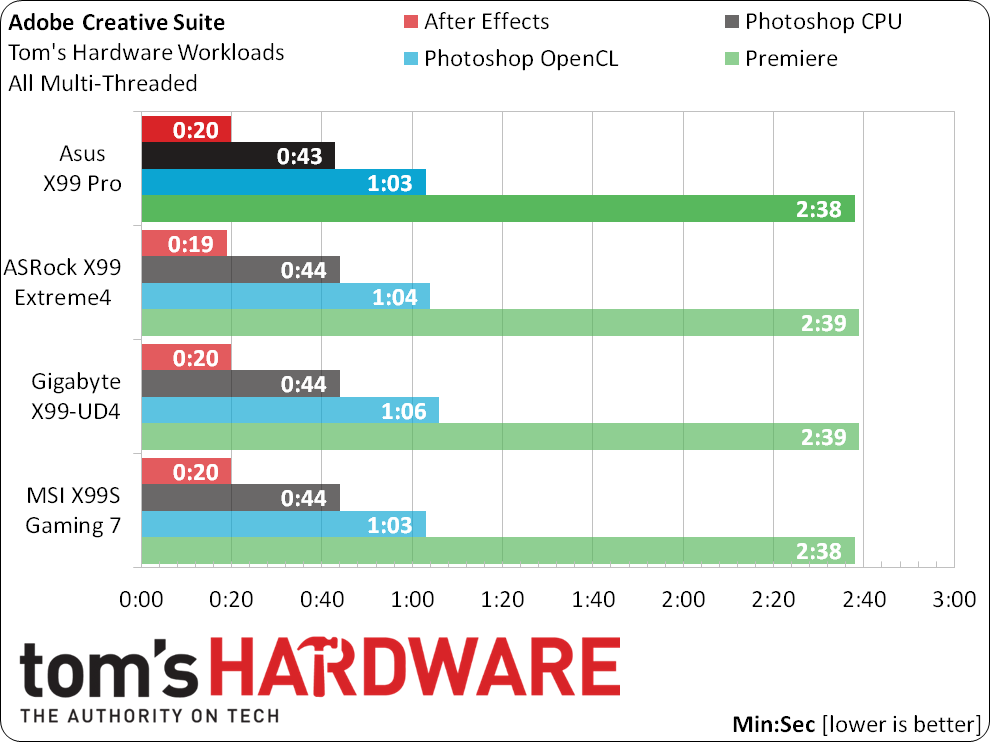
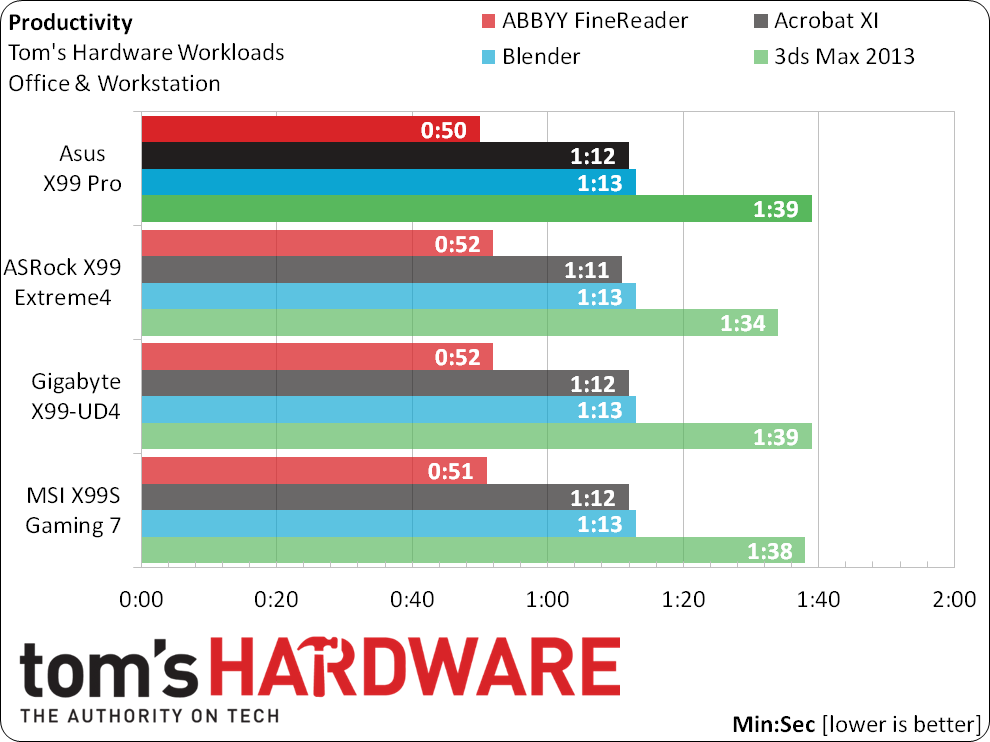
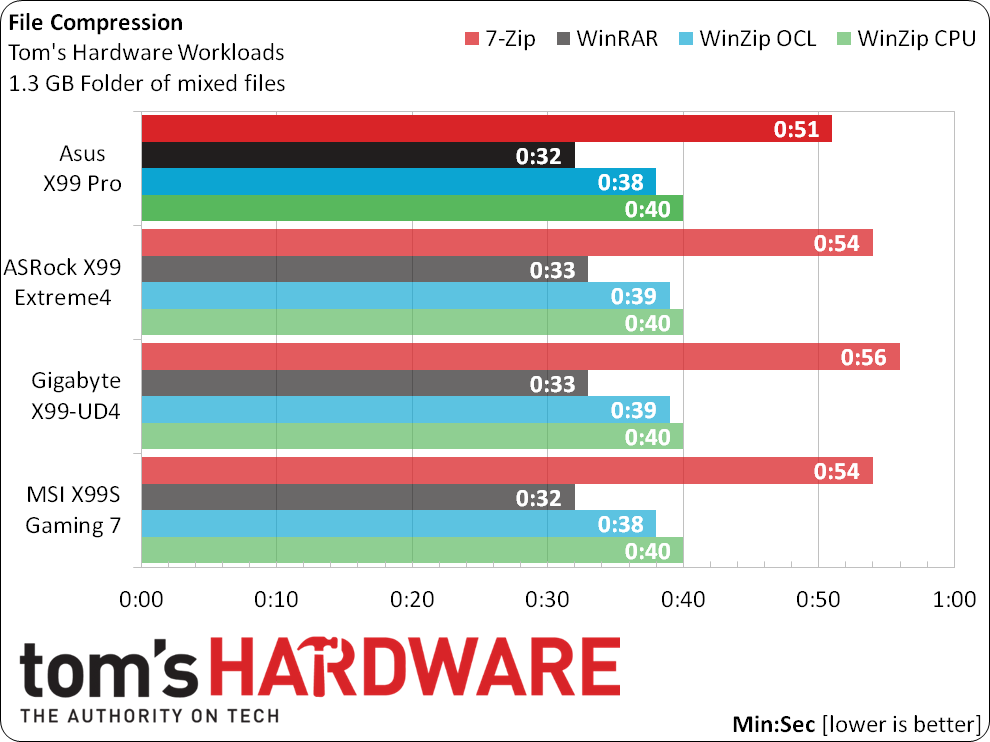
The X99 Pro gains a second in Adobe Photoshop and ABBYY FineReader, though rounding difference mean it was probably closer to a few milliseconds. A larger three-second lead in 7-Zip isn’t as easy to discount.
Power, Heat And Efficiency
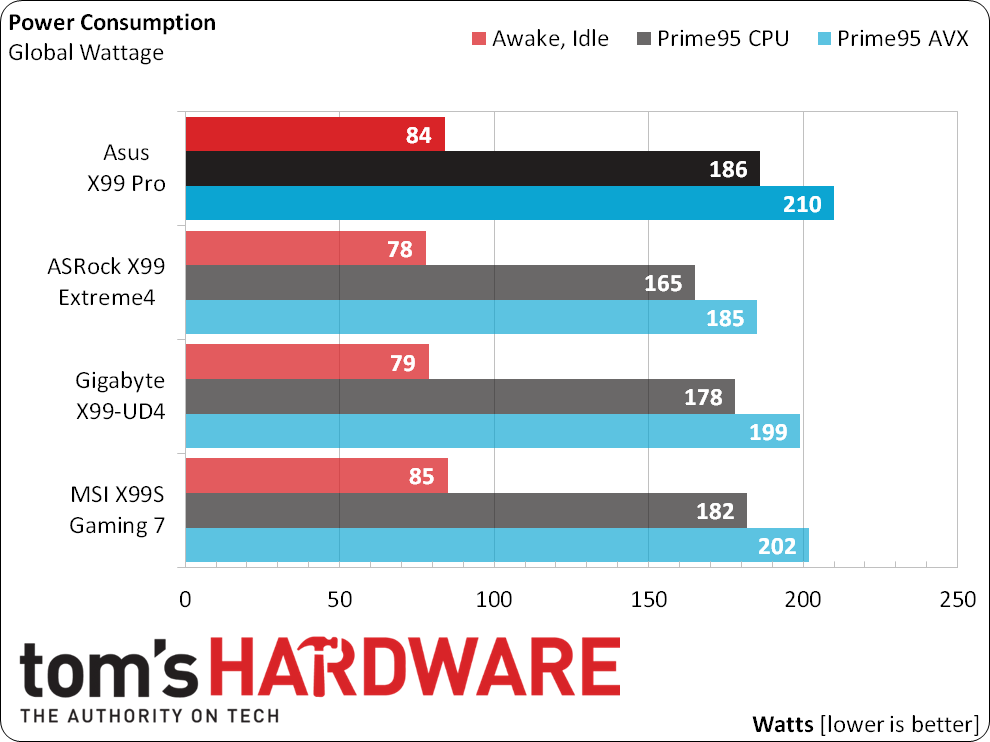
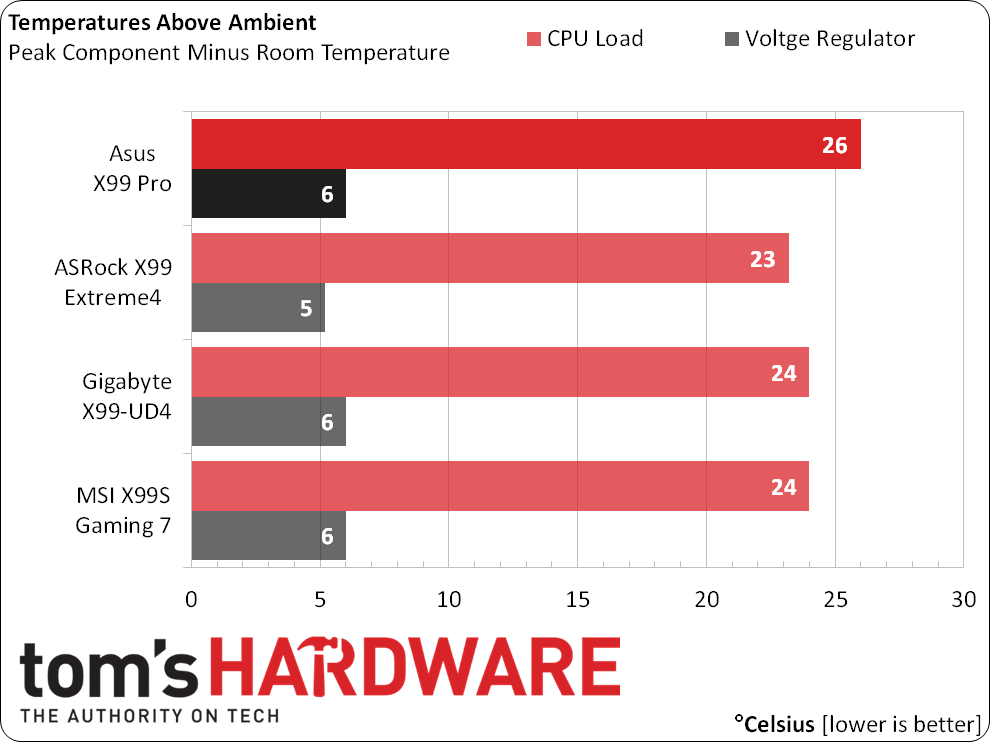
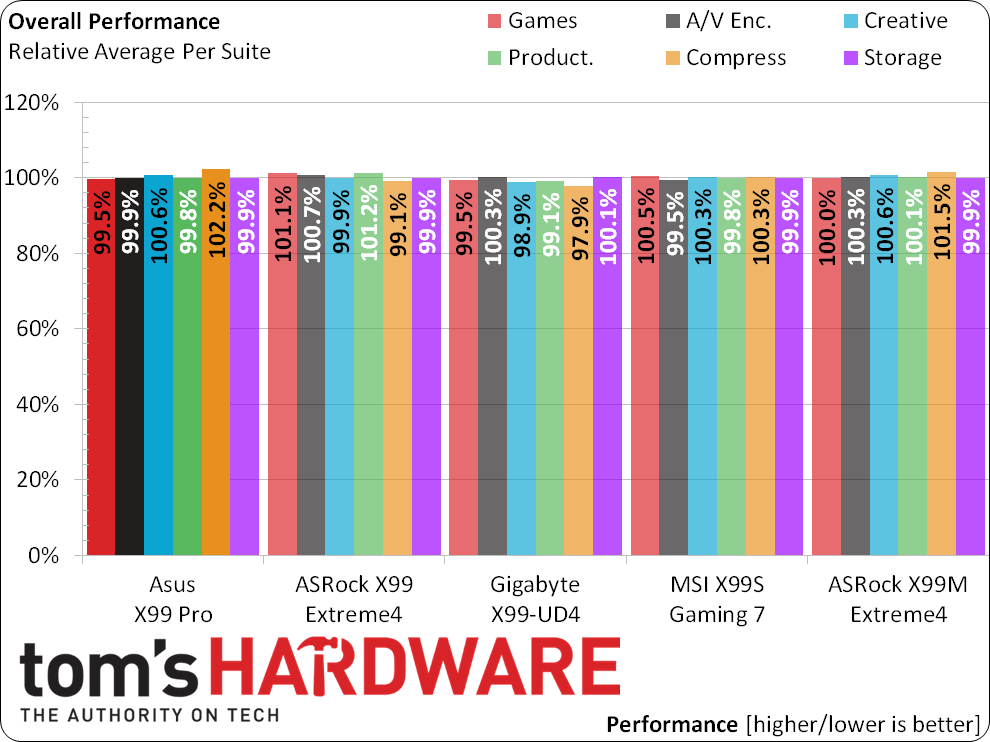
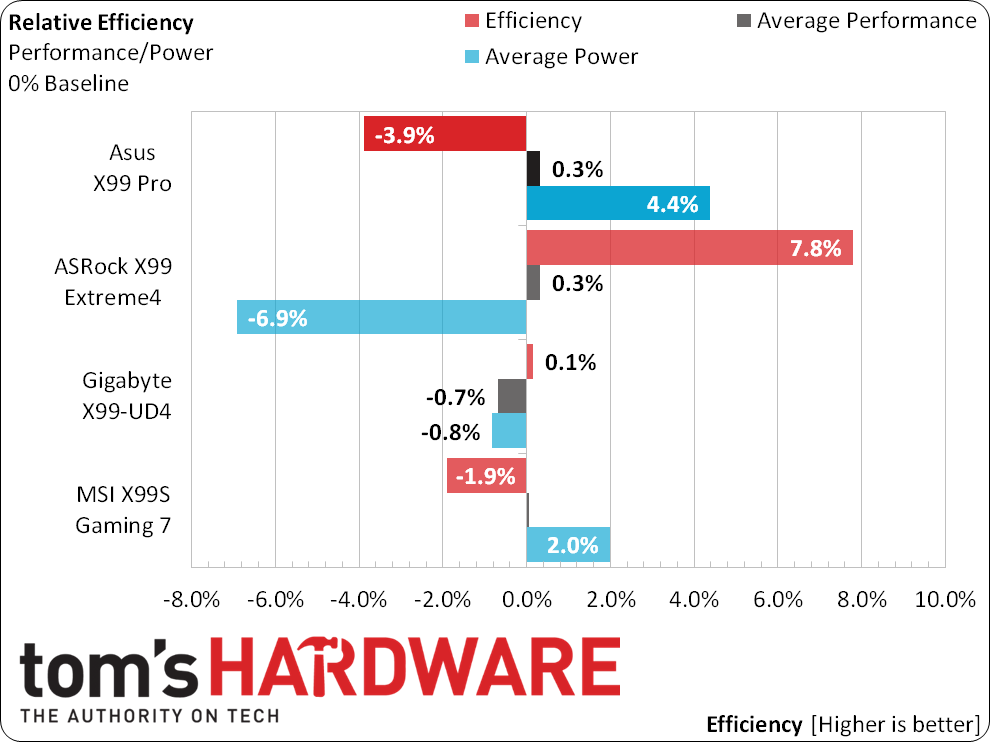
The X99 Pro pulls slightly more power than average across all tests, but gets particularly hungry when loaded. Thermal results at full CPU load indicate that it’s probably using a slightly higher voltage than the other product, and the result is 3.9% below-average efficiency.
Get Tom's Hardware's best news and in-depth reviews, straight to your inbox.
Current page: Results: Benchmarks, Power, And Efficiency
Prev Page X99 Pro Firmware And Software Next Page Overclocking-
StarBound The gaming tests shows a socket 1150 cpu, the i7 4790. That can't be right. Are all tests done on a i7 5960X?Reply -
Sabishii Hito I'm curious as to where the voltage check points are on this board, I know the Rampage V has easily accessible (and labelled) ones.Reply -
Eggz I've been hoping since X99 came out that it could offer something compelling over X79 besides a 8-core configuration option. That is, assuming you can either spend $1,100 on a single chip or else have a hook up. DDR4 is too young and doesn't offer the value or low latency of DDR3 yet, though I'm confident it will in time.Reply
Maybe the next round of Extreme chips will present something better from an upgrade standpoint, at least for those still on X79. But for people still on X58, obviously, it's a different story. -
sosofm Why did you test 3 ATX motherboards with Asrock mATX and not the with the big brother Asrock X99 Extreme 4 ?Reply -
Crashman Reply
Yes. The charts were recycled from the reformatted 1150 spreadsheet. And that puts me in a bind because it means if I update this article with new charts, I have to update the previous articles...I'd rather be testing hardware :)15053121 said:The gaming tests shows a socket 1150 cpu, the i7 4790. That can't be right. Are all tests done on a i7 5960X?
Because the charts can only hold a certain number of systems, and the mATX tests were newer (newer firmware, which made the 1.25x strap more stable, which allowed addition of the 125MHz+ BCLK test).15056157 said:Why did you test 3 ATX motherboards with Asrock mATX and not the with the big brother Asrock X99 Extreme 4 ?
Sorry that we can't retest every single board for every review, but if you look at the Extreme4 review you'll see that everything else (apart from 1.25x strap optimization in firmware) is the same.
-
NaqoyqatZ Is there really a demand for WiFi on this platform? I can only see a need for that on a min-itx or micro-atx gaming rig that one could take to a LAN party/tournament. Personally, I'd rather have a lower price. You can keep the WiFi.Reply -
Crashman Reply
You can use it as a hot spot :) In the other direction, you can move it to another room that doesn't have a cable. Or, you can buy a cheaper version of the board without Wi-Fi.15058546 said:Is there really a demand for WiFi on this platform? I can only see a need for that on a min-itx or micro-atx gaming rig that one could take to a LAN party/tournament. Personally, I'd rather have a lower price. You can keep the WiFi.
-
loosescrews The slot config on this board makes it perfect for 2 GPUs + a high performance PCI-e card. Examples of the third card could include a RAID card, hhhl PCI-e SSD, or 10Gbps networking card. I am been looking for a board like this.Reply
I still probabally won't buy it because I need dual gigabit LAN. If they had only included another gigabit LAN port or made slot 3 a 1x slot. I don't want to steal lanes from my GPUs for an extra gigabit LAN port.
